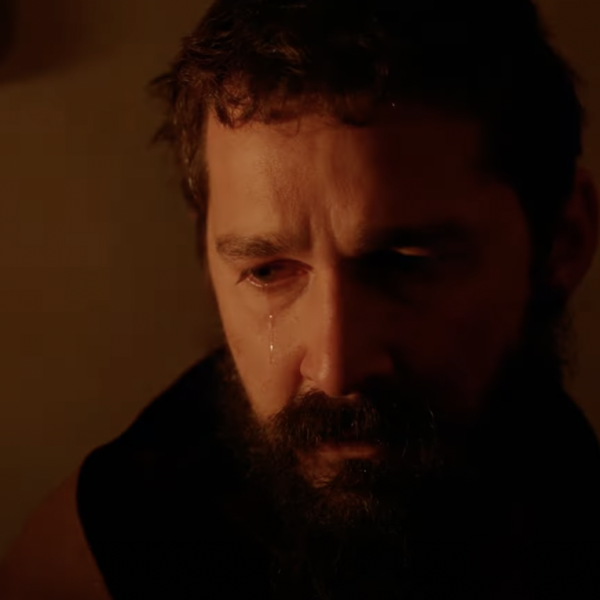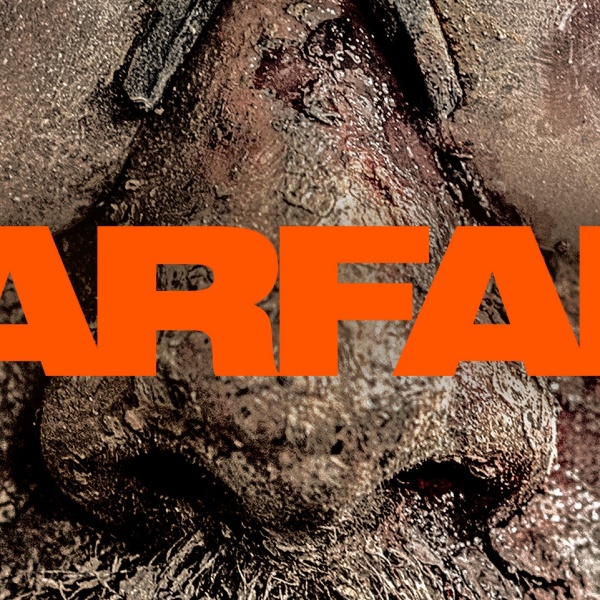Three films into his career, Norwegian filmmaker Kristoffer Borgli has made it his business to skewer — both amusingly and horrifyingly — the insidious desire for fame and what happens after we achieve it. His first film, the unclassifiable meta-documentary satire “Drib,” led neatly into his sophomore outing, the screamingly funny “Sick of Myself,” which follows a young woman who goes to insane lengths to become famous. For his third film, “Dream Scenario,” he’s gone bigger, crazier, and deeper.
“Dream Scenario” is a surreal and honest take on a prickly thought experiment: What happens when a seemingly everyday professor, inevitably played by Nicolas Cage (he’s called Paul Matthews, about as throwaway a name as could be imagined, and even that comes with a hilarious button Borgli throws into the first act) starts appearing in the dreams of millions of people, including those he’s never met? Sounds a bit like the push and pressure of social media, stretched to crazy ends, right? Kind of.
“My films aren’t necessarily about social media, I think that the read of them can be seen as social media,” Borgli said in a recent interview with IndieWire. He pointed to “Sick of Myself” as further proof of that. “It’s never even mentioned if she [Signe, played by Kristine Kujath Thorp] has a social media presence, we don’t show screens, we don’t show any social media,” he said. “People assume that that’s a driving mechanism, but it’s so in everyone’s heads that I don’t even have to make that connection, people just do that on their own.”
Borgli said he’s compelled by “mass culture and recognition and status, and what that looks like now,” but that’s an interest that does happen to couple quite easily with the rising influence of social media. “Our self-worth is now through the eyes of others,” he said. “I think it has provided a proxy for feeling accomplished. In the same way that fast food was a bad source for running a healthy life, it’s the empty calories of status. The healthy version is: You are trying to accomplish something, something that might be difficult, and something that people might value once you’ve done it. Social media has just gotten rid of that problem. You don’t have to achieve anything, you just need to go hard with a personal branding and making yourself the product.”
For “Dream Scenario,” Borgli found a natural pairing between the concept of a world in which people don’t actually have to do anything to get the attention that used to be foisted on those doing something great with the work of analytical psychologist Carl Jung and his theory about the collective unconscious. Paul Matthews doesn’t do anything, and yet, he suddenly starts to appear in the dreams of people around the world.

“There’s a specific idea in there about the shadow self, as Jung calls it. It’s that the negative traits that you have, if you don’t confront them, they will start appearing and taking over your subconscious. You might start seeing that version of you in dreams,” the filmmaker said. “I thought it would be really funny if someone had such strong negative traits that they started showing up in other people’s dreams. What you see in the movie is this inadequate person who is completely obsessed about the discrepancy between his image of himself and how other people see him, and that the obsession … manifests in this collective consciousness of the public psyche.”
Don’t worry too much about the mechanics of that imagined process — even Borgli admitted he “doesn’t know scientifically how that works” — because that’s not at all what the film is about. “I felt like every time I tried to figure it out, I became uninterested,” he said. “It was so beyond the point, and not artistically interesting at all. What I’m looking at here is how it affects people’s lives, and how people are responding to this phenomenon.”
Who, then, could Borgli call upon to literally embody said phenomenon? Borgli said he wrote the part of Paul Matthews “without anyone in mind,” let alone Cage (“I wasn’t even thinking that I could reach a Nicolas Cage level of actor,” he admitted). Once producers Ari Aster and Lars Knudsen, plus distributor A24 came on board, Borgli started allowing himself to think a bit bigger.
“Nicolas Cage quickly became the most suited person to play this part, because he has, in many ways, experienced a lot of the same things as the character goes through, and the film took on a meta layer because of it,” Borgli said. “But my challenge then became, how do you make the most recognizable and naturally charismatic person feel socially awkward and unremarkable?”

Mostly, Borgli said he had to turn Cage, an Oscar-winning movie star from one of our most well-known arts families, into a beta male. “He really nailed a specific character who is a beta male, but thinks that he is an alpha male, or is really trying to be one,” Borgli said. “Who’s socially awkward, but trying to perform ‘socially comfortable,’ that’s a multifaceted way of acting something, and I think Nic really aced it.”
Cage also adopted a high-pitched voice for Paul: very nasal, deeply annoying. “That is completely him,” the filmmaker said. “I [talked to] him about being as non-threatening as possible as a human, and I think he felt that his own personal voice … was maybe a little bit too masculine. And we want to emasculate him more.”
And, as Borgli shared, they “went to great lengths” for the rest of it. “We shaved his head, he’s bald in the film. I always imagined the character always wearing this big green parka, that was in the script already,” he said. “But even that wasn’t enough, and we actually made a prosthetic nose for him. It’s not really noticeable, I don’t think anyone can tell the difference when they’re watching it, but it does create this uncanniness, where he is different enough where you, as an audience, start feeling that I’m thinking more about Paul, the character, than Nicolas Cage, which was the hope and the desire.”
While Cage has spent the past few years dabbling in out-of-the-box roles in films that span genre, tone, and scope (see: “Mandy,” “Color Out of Space,” “Prisoners of the Ghostland,” “Pig,” “Renfield,” and “Butcher’s Crossing”), Borgli thinks his work in “Dream Scenario” is both totally new and a bit of a throwback.

“I think that people recognize that this is different for Nic,” Borgli said. “To me, personally, I [was] in love with his performance in ‘Adaptation,’ so I knew that he could play a neurotic, socially awkward person. I knew he had it in his toolkit, but we didn’t want to repeat that performance, so we sculpted together this new performance. But, I think, the closest performance out of his catalog [to this role] has been ‘Adaptation.’”
The role also offered Cage the chance to embody all sorts of facets of just one character, a challenge Borgli said he more than met. “He gets to be so many things because he shows up as different versions of himself in other people’s heads,” Borgli said. “He got to be an intimidating, sexy person. He got to be a little bit of a showman once he starts enjoying the attention. He got to be an extremely violent, scary person. He got to be a very vulnerable, sad, lonely man. This performance, this character, and this project lend itself for him to be 10 different things at once. … When I needed the character to go from passive and intimidated to confident and extroverted, I knew that Nic had all of that in him. It’s unleashing the whole spectrum of what Nic Cage is capable of.”
So what’s the full spectrum of what Borgli is capable of? When it’s pointed out that “Dream Scenario” gets as close to true horror as he’s gone yet with his filmography — and working with modern horror maestro Ari Aster seems to indicate further interest in that space — he considered the underlying question: Is a full-out horror film his next step?
“I don’t think that that’s my final form, but I’m very interested in it,” he said. “Maybe I will do a more pure and dedicated genre movie in the future. I’m following my intuition, I’m not really thinking about genre, I’m just thinking that the story, to hit all the points that I want, needs to become this, or then needs to be a little bit sad, and then I need some comedic relief.”

Mostly, he wants to keep mixing things up, blending genres and tones for his own ends. “With ‘Sick of Myself,’ I was very interested in body horror, not as a genre, but as a visual aesthetic,” he said. “I thought it’d be interesting to hijack or kidnap it out of its genre and place it in a Woody Allen movie. What if body horror showed up in a Woody Allen movie? Similarly, with ‘Dream Scenario,’ it was like, what if we took ‘Nightmare on Elm Street,’ ripped it out of its genre, and placed it in a social satire? You take something that’s recognizable and put it in an unrecognizable place in order to create this artistic confusion which, to me, is very titillating.”
He pointed to Dutch filmmaker George Sluizer’s original “The Vanishing” (aka “Spoorloos”) as an example of this kind of “artistic confusion.” “It was so scary, because it didn’t reassure me that it was trying to be scary,” he said. “[There’s] this clumsy serial killer, who’s so awful, but you’re not putting in the music and all the cues to let me be assured that we’re on the same page about this character. That confusion is interesting to me.” (That Borgli finds the film, often hailed as one of the scariest films of all time, as somewhat funny, says even more about his unique taste and tone.)
Borgli sees that at play in “Dream Scenario.” “Paul Matthews, is he a good guy? Is he a bad guy? I don’t have a very clear stance on it,” the filmmaker said. “I think he’s both a victim and a perpetrator, and I think we should be debating, who’s at fault? Are we, as a culture, at fault? Is he misguided? I don’t want to have the answers.”
An A24 release, “Dream Scenario” is in select theaters now, and will expand nationwide on Wednesday, November 22.





